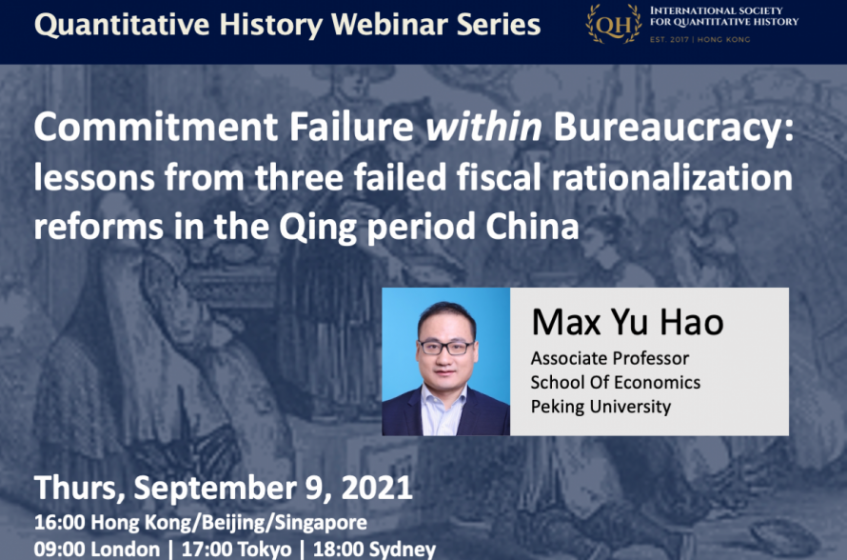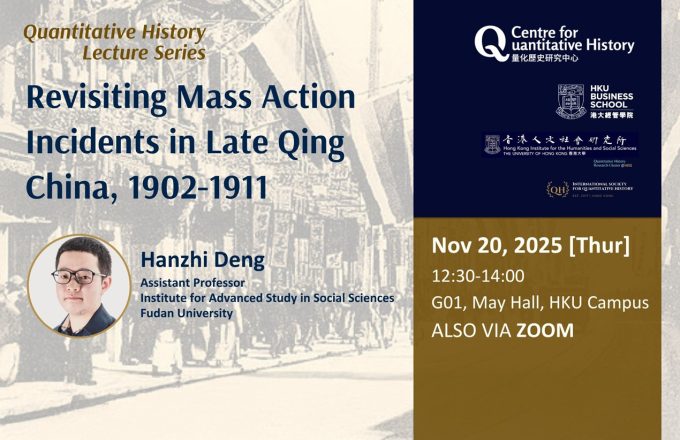
Commitment Failure within Bureaucracy: lessons from three failed fiscal rationalization reforms in the Qing period China
Commitment Failure within Bureaucracy: lessons from three failed fiscal rationalization reforms in the Qing period China
Max Yu Hao of Peking University and his co-author examine the role of the commitment problem within bureaucracy in explaining why formal taxation was low and, whereas informal levies could not be eradicated throughout the Qing period. During much of the Qing period, the central government collected most of formal land taxes, while provincial and county governments relied on unsupervised informal levies to finance their regular and irregular expenses, causing severe corruption and frequent tax protests by the commoners. The state made several attempts to solve this problem by allowing locals to collect a fixed amount of land surtax, which was shared among the provinces and counties, and spent on specified expenditure items. This was viewed as fiscal rationalization reforms (Zelin, 1984). However, such rationalization was incomplete without solving the commitment problem within bureaucracy. In particular, fiscal transparency made it easier for the upper governments to collect lower revenues at their wills or divert lower revenues to upper expenditures. Such “commitment failure” forced ill-financed local governments to extract excessive extralegal levies from peasants, which ultimately caused tax revolts. So ironically, reforms intended for eradicating informal levies resulted in even more informal levies and tax revolts, consistent with the theoretical proposal by Ma and Rubin (2018).
In this Quantitative History Webinar, Max Yu Hao will present a trilogy of papers*** exploring the impact of fiscal rationalizations on public goods provision, the size of informal taxation, and tax burdens. Overall, the findings help explain why fiscal rationalization was always unsuccessful, and state capacity remained low throughout the late Imperial China, and this problem remains unresolved.
Max’s co-author: Kevin Zhengcheng Liu (HKU Business School)
Live on Zoom on September 9, 2021
16:00 Hong Kong/Beijing/Singapore
09:00 London | 17:00 Tokyo | 18:00 Sydney
Calculate your local time
The Quantitative History Webinar Series, convened by Professor Zhiwu Chen and Dr. Chicheng Ma of The University of Hong Kong (HKU), aims to provide researchers, teachers and students with an online intellectual platform to keep up to date with the latest research in the field, promoting the dissemination of research findings and interdisciplinary use of quantitative methods in historical research. The Series is co-organized by the International Society for Quantitative History, HKU Business School, and the Asia Global Institute (AGI).
Conveners:
Professor Zhiwu Chen
Dr. Chicheng Ma







